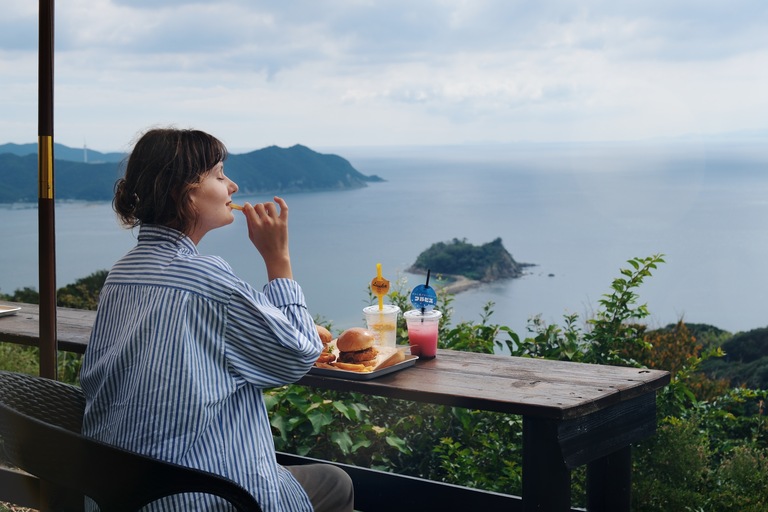- Nature / Scenery
- History / Culture
- Gourmet
Fukura area on Awaji Island: Timeless Japan and the Scenic Naruto Whirlpools
Contributor : Kristina
Join me as I take you on a journey through Fukura, a peaceful port town located on the southern tip of Awajishima. Known for its nostalgic charm, Fukura feels like a place where time stands still. With a rich history of fishing and trading, the town now serves as a quieter gateway for visitors heading to the famous Naruto Whirlpools and the traditional Awaji Ningyo Joruri puppet theater. In this article, I’ll introduce you to some of the area’s key landmarks and share a glimpse of local life.
How to Access Fukura
Fukura is easily accessible, just a 10-minute drive from Awajishima South IC or a 25-minute drive from Seidan Mihara IC. If you're using public transportation, the Fukura Bus Terminal is the nearest stop, perfect for exploring the town on foot. Buses run hourly from Kobe’s Sannomiya Bus Terminal, making the trip simple and convenient—even for first-time visitors to Japan!
Strolling Through Nostalgic Streets
Have you ever encountered a place that feels like a time capsule? Fukura is precisely that. Once a bustling hub, the town carries a nostalgic, retro charm.
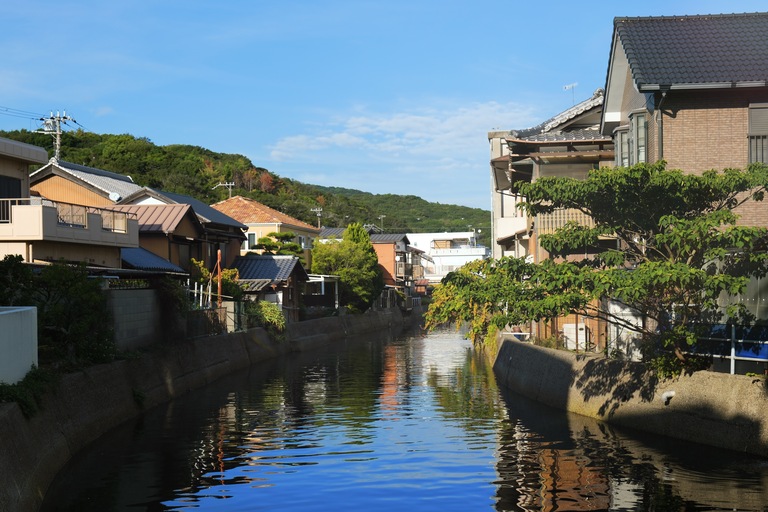
Retro streets of Fukura area
The streets are often empty, with old buildings and untouched storefronts giving it a frozen-in-time atmosphere. This quiet ambiance contrasts with the lively tourism near Naruto Strait.
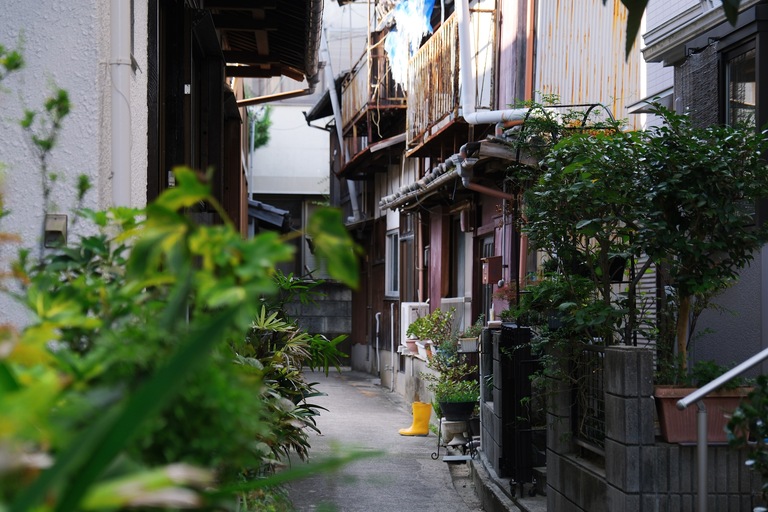
I couldn't resist snapping photos of every corner !
Fukura’s serene, timeless setting offers a unique experience for those who appreciate retro aesthetics. Its vintage architecture and quiet alleys make it a perfect spot for photographers looking to capture Japan’s past. There are several eateries in the area, but unfortunately, I didn't have time to explore that option.
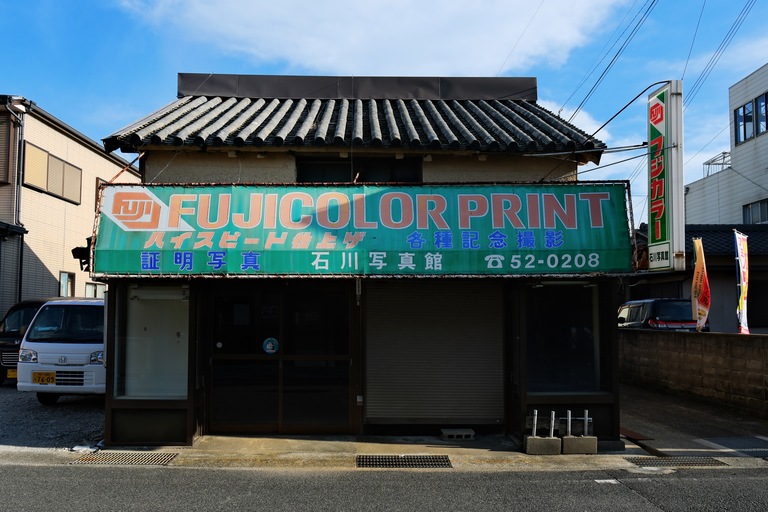
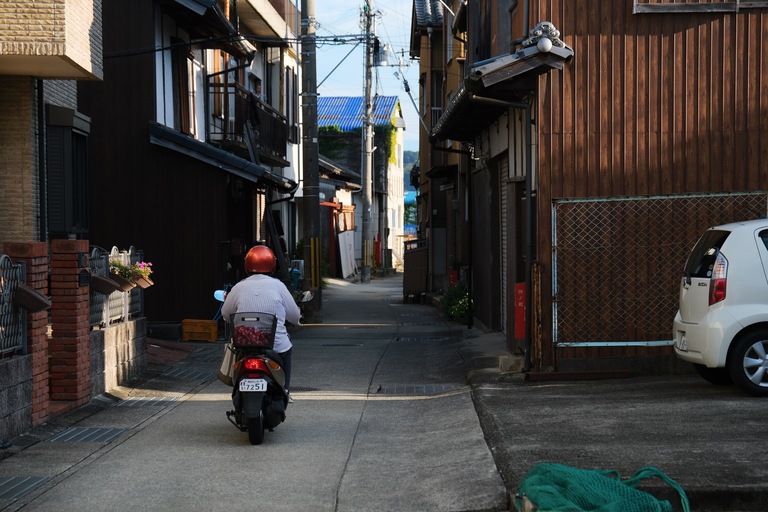
The Famous Naruto Whirlpools (Uzu-shio): A Natural Wonder of Japan
The Naruto Whirlpools (Uzu-shio) are one of Japan’s most mesmerizing natural wonders in the narrow Naruto Strait between Awajishima and Tokushima Prefecture.
Several factors influence the formation of whirlpools, one of which is the tidal changes caused by the moon's and sun's gravitational pull. Water levels fluctuate as the tides rise and fall, leading to powerful currents.
In the Naruto Strait, the difference in water levels between high and low tides creates a strong tidal current. This current, combined with the variation in speed between the fast-flowing central waters and the slower waters near the land, generates rotational force. As a result, these swirling whirlpools, known as 'uzushio,' are formed.
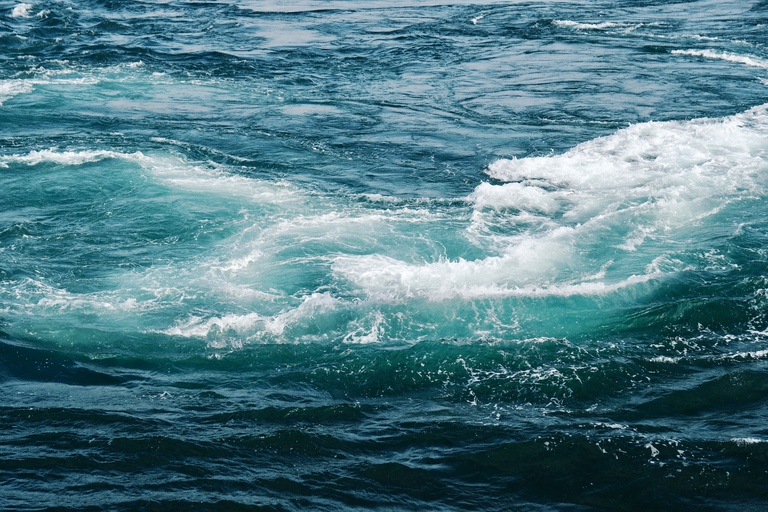
Japan's most mesmerizing natural wonders - The Naruto Whirlpools
To reach the Naruto Whirlpools from Awajishima, take the bus I mentioned above from Kobe Sannomiya to Fukura Port. It’s just a two-minute walk to the Uzushio sightseeing cruise boarding area.
The best time to see these spectacular whirlpools is during spring tides when the pull of the sun and moon align to create even stronger currents. At this time, the whirlpools can grow to their most dramatic sizes. Check the tide schedules in advance for the best viewing experience.
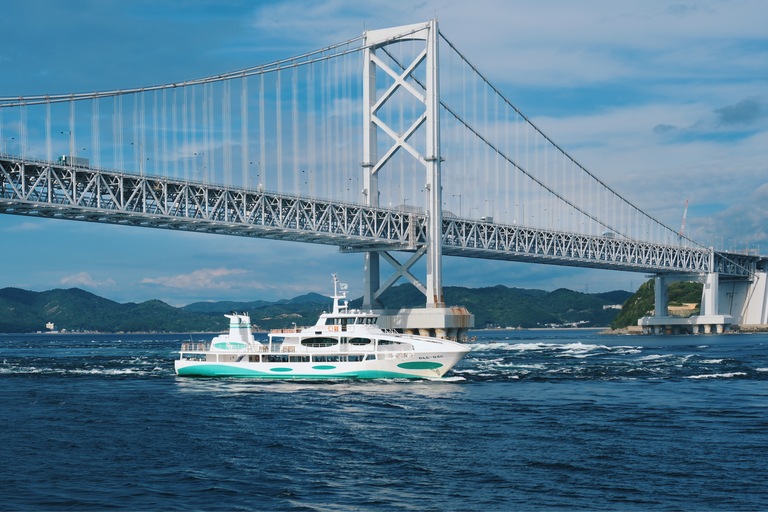
The Uzushio sightseeing cruise
Once on the cruise, you’ll get an up-close view of the whirlpools while enjoying a guided tour. Although the guides usually speak Japanese, the cabin offers videos with subtitles that explain the fascinating phenomenon behind this natural wonder. The whole experience is fast-paced and exciting, and before you know it, you’ll be busy snapping photos of the swirling water below.
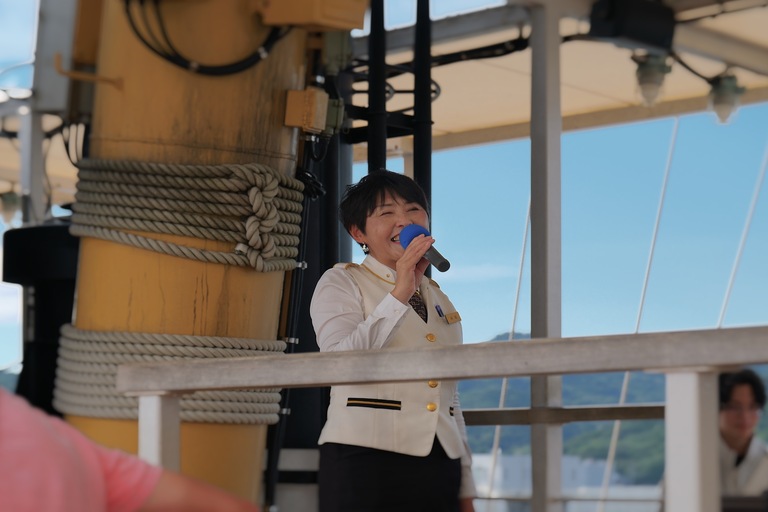
The cheerful guide on the cruise
Fukura Marche
After the ship tour, I explored some local shops nearby. My top recommendation is Fukura Marche, conveniently located next to the Uzushio sightseeing cruise boarding area. The market specializes in local produce, fresh seafood, and Awajishima’s most iconic product: the Awaji onion. Known for its sweetness and versatility, this onion is a must-try delicacy and a true island symbol. I even bought 5 kilos to ship to my apartment—it tastes much better than the onions I usually get back home in Tokyo!
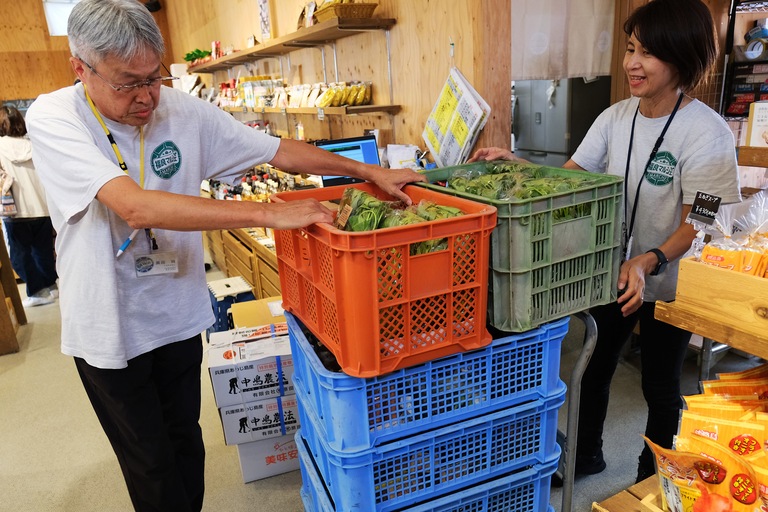
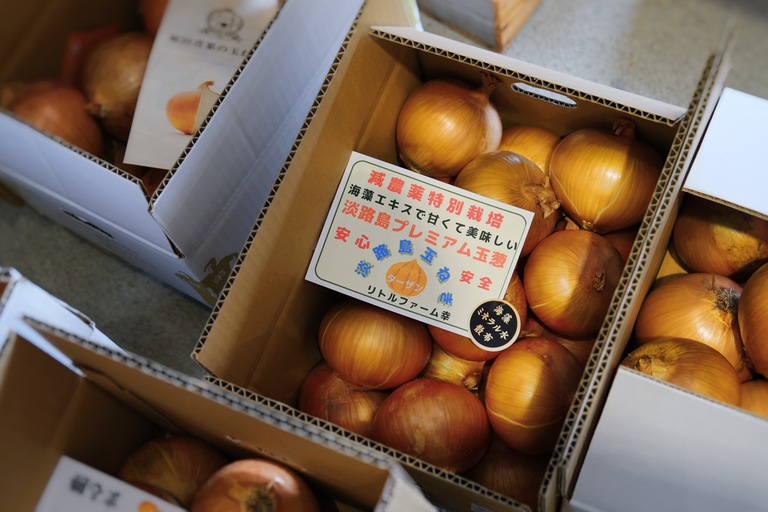
500 Years of Storytelling: The Timeless Art of Awaji Ningyo Joruri
Awaji Ningyo Joruri is a centuries-old traditional puppet theater unique to Awaji Island, with a history stretching over 500 years. This captivating art form, recognized as an Important Intangible Folk Cultural Propertyof Japan, is performed at the Awaji Puppet Theater in Fukura. At its peak, more than 40 puppet troupes were active on Awaji Island. Still, today, the Awaji Puppet Theater is the only institution continuing to preserve and showcase this rich cultural tradition.
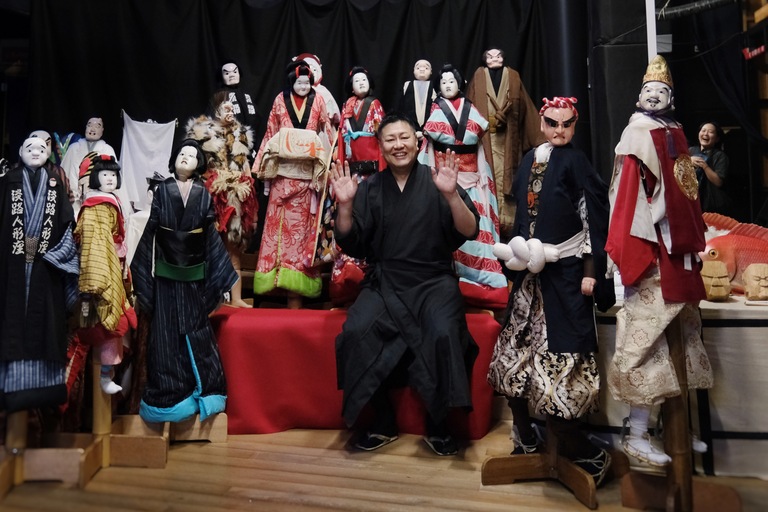
The puppet master, Yoshida Hironosuke, surrounded by Awaji puppets
Before the show, you’ll have the unique opportunity to take a behind-the-scenes tour—and I won’t spoil the surprise by posting any pictures from it! You'll see various puppets used in Awaji Ningyo Joruri, some over 200 years old. The care taken to preserve them is incredible - they look as if they’re brand new.
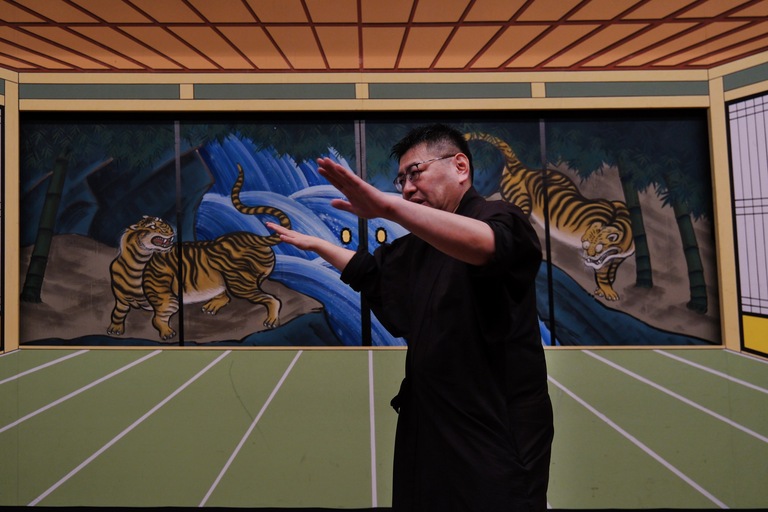
Behind the scenes !
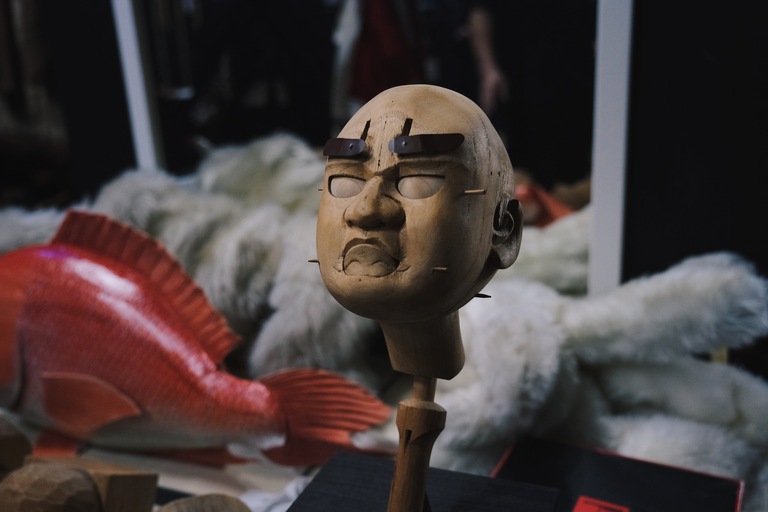
The head of Awaji doll
Some of these puppets are more than a meter tall, so I was genuinely surprised when the puppet master, Yoshida Hironosuke, placed one next to me for a picture—it looked almost lifelike! Just look at my surprised face!
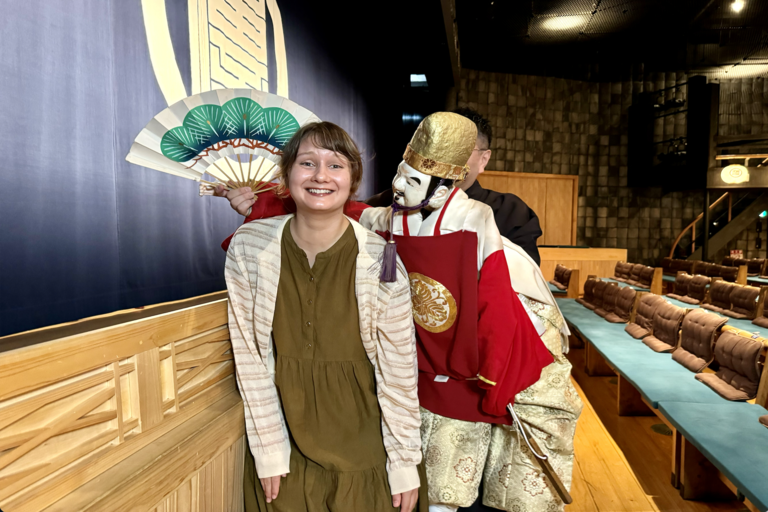
So surprised when the puppet master placed the Ebisu* doll next to me for a picture
After the tour, there’s a short 10-15 minute performance. Three puppeteers coordinate each show: one controls the head and right arm, another manages the left arm, and the third handles the legs. Together, they create such realistic movements that the puppets are alive. Their detailed expressions and graceful gestures bring the story to life. Don’t worry if you don’t speak Japanese—translation tools are available here so you can follow along. It’s available in Korean, Chinese and English.
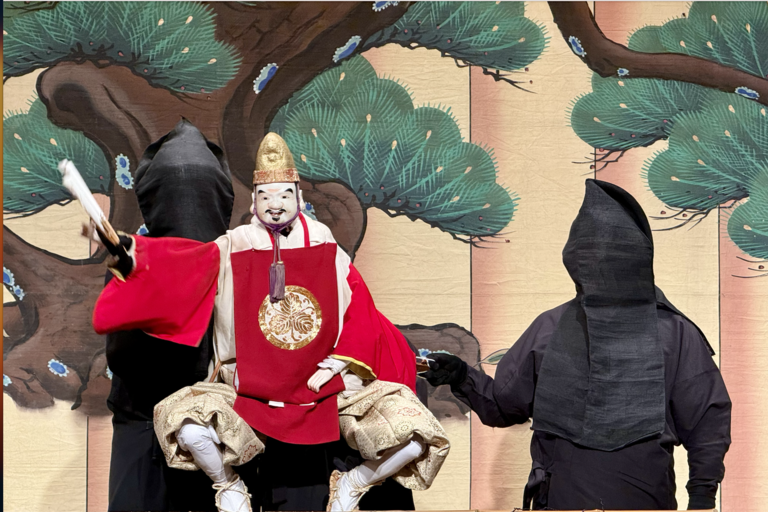
Part of the show "The Ebisu Mai"
I enjoyed the show and the entire experience much more than I expected! If you're skeptical and think this place might be just for kids, trust me—you’ll have a great time!
In the morning, enjoying a puppet performance and in the afternoon, seeing the Naruto whirlpools, spending a relaxing day in Fukura is sure to be a perfect day. Check the official websites for both attractions to confirm showtimes and tide schedules.
*Ebisu is one of the Seven Lucky Gods in Japanese mythology, primarily worshiped as the god of prosperity in business and fishing. He is typically depicted smiling and holding a large fish or sea bream, symbolizing abundance and good fortune.
Onaruto Bridge Memorial Hall, Uzu-no-oka: Scenic Views and Local Flavors
To wrap up the day, I visited the nearby Onaruto Bridge Memorial Hall, Uzu-no-oka. Awaji Island is famous for its onions, and this place’s food stalls showcase this local ingredient in various dishes —all with great views!
A stunning view upon a stunning view - what could be better ?
One must-try is the award-winning Awaji onion burgers, celebrated for their incredible flavor and freshness. The juicy meat paired perfectly with the fried onion cutlet made from Awaji onions—I nearly couldn’t resist buying a second burger! The lemonades were also a highlight, made with fruits like lemon and blueberry, all locally grown on Awaji Island.
Date : 2024.11.08

